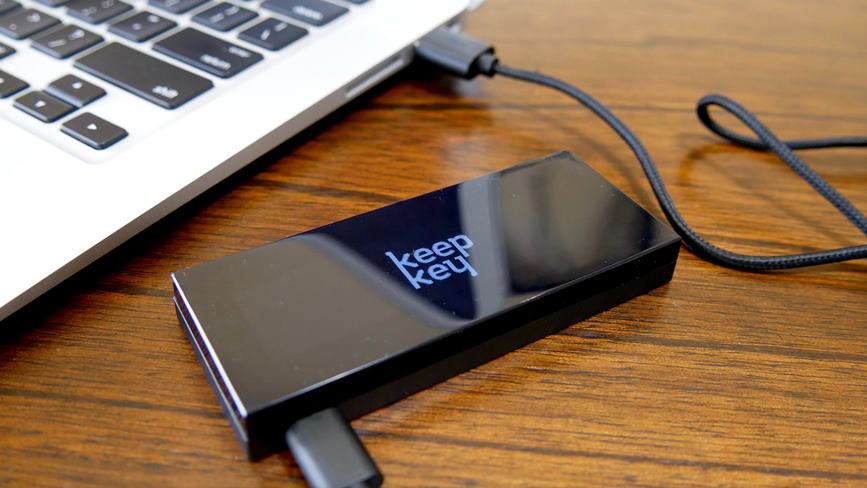
Image Source: 7Labs
Since the inception of Cryptocurrency Hardware Wallets, the need for them has considerably risen; moreso in the view of the rising popularity of bitcoin and alternative digital currencies. This has also created more alternatives and options for hardware wallets users, with a lot more features.
In this article, I’ll review some of the world’s most popular cryptocurrency hardware wallets in the market today. Please, feel free to add your comments below.
First, I’ll like to briefly mention what a cryptocurrency hardware wallet is. It is a physical device that stores private keys in a protected area within the device. Hardware wallets are currently more preferred for spending and receiving purposes because they are more practical than paper wallet (for example, LOL!). Reports from statistics have indicated no any major occurrences of huge vulnerabilities or vivid occurrences of cash thefts by hackers have been recorded with hardware wallets. Also, hardware wallets are resilient to viruses, and private keys cannot be removed from them in plaintext. While am not saying hardware wallets are 100 percent secure, a lot of Bitcoiners will agree with me there are too many significant advantages in choosing a hardware wallet.
Having said that, let’s take a look at the world’s most popular hardware wallets, based on
users’ votes and
popular demands.
1. Ledger Wallet

Image Source: Ledger Wallet
Ledger Nano S is a well-known brand of Ledger Wallet currently available in the market as at the time of this writing. Another brand called the Ledger Blue is only available for pre-order at the moment. Ledger Nano S is a multicurrency (bitcoin, ripple, ethereum, bitcoin cash, and others) hardware wallet, designed with top-notch security in place. It safely stores cryptographic assets and digital payments are highly secured. Ledger Nano S is portable and works with any computer (via USB, of course). It can be safely used on a malware infected computer. It features a secure OLED display to double-check and confirm each transaction with a single tap on its side buttons. The display is useful for PIN verification, seed restoration, sending confirmations, and other useful tasks.

Image Source:
Live Bitcoin News
Most users prefer to buy the wallet from the firm, but many users also buy from third-party retailers like Amazon.
PROS
- Affordable hardware wallet with screen at 58€ ($65)
- Ledger has better style than many of its competitors
- It comes in sleeker design
CONS
- Ledger Nano S lacks support for passphrases (a sequence of words or other text used to control access to a computer system, program or data - Wikipedia)
2. Trezor Wallet

Image Source: TREZOR Bitcoin Wallet
TREZOR is also one popular Bitcoin hardware wallet launched in August 2014 by Satoshi Labs. The wallet offers private key storage for bitcoin, altcoins, and ERC-20 tokens as well.
TREZOR is a small, key-sized device with solid plastic case, which connects to your computer through USB cable. It can store Bitcoin private keys offline and can also sign transactions. It also can be safely used on a malware infected computer. The Trezor wallet can handle 2FA functions (two-factor authentication, a security process in which the user provides two authentication factors to verify they are who they say they are -
TechTarget), act as a password manager, and offers document signing and encryption with GPG.
Like its Ledger counterpart, Trezor also uses its screen and two buttons for PIN verification, sending confirmations, and firmware updates. Without shipping fees, the device costs around $106 or the bitcoin price equivalent.

Image Source: Satoshi Labs
PROS
- Screen offers additional fortification and verification.
- If lost, users can use secret words to get access to all keys, money, history, accounts and emails.
CONS
- $99 price tag may be unaffordable for users on budget
3. Keepkey

KeepKey is a safe Bitcoin hardware wallet that was launched in 2015 by the cryptocurrency startup
Shapeshift. KeepKey secures digital currencies like bitcoin, ethereum, litecoin, dogecoin, dash, and namecoin. Your assets are protected from hackers and thieves. Like TREZOR and Ledger Nano S, KeepKey is easy to setup with some more advanced features, making it a great choice for many Bitcoin users. However, Keepkey is a bit bigger in size than the Ledger or Trezor counterparts, and comes with an anodized aluminum case.
Keepkey offers a micro-USB connection, and a 3.12″ OLED screen display for verification and confirmation procedures. Keepkey also stores private keys for multiple cryptocurrencies, and users can, as well, create their own custom firmware by tweaking the default firmware on the device.
Although Keepkey is relatively new in the market, but it has received decent reviews from various users. The device costs $129 using bitcoin, Paypal, or credit card and can be shipped out either standard mail (3-9 business days an extra $15) or priority shipping (Fedex 2 Day an additional $47.98).
My Final Thought
Hardware wallets have recently gained more popularity as cryptocurrency adoption grows more avidly. They are considered a reliable investment for, in the long run, they can prevent theft from malicious attacks and offer peace of mind that your cryptocurrencies are safe. As the digital asset phenomenon continues, we look forward to more improvements on hardware wallets, and await many more manufacturers to come out of the woodwork.





